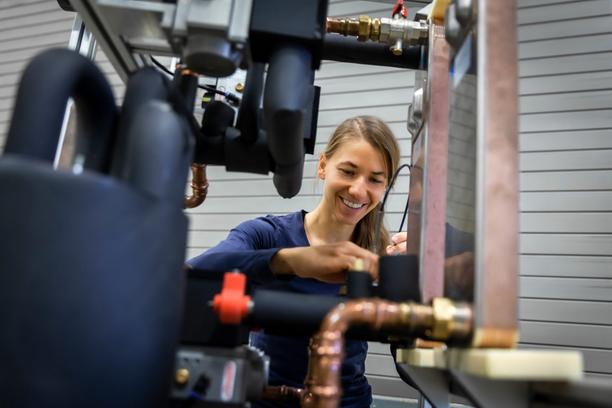Emicon Introduces Innovative Propane Chiller and Heat Pump Technology
Emicon Unveils Cutting-Edge Modular Propane Chillers and Heat Pumps Italy-based Enex Technologies’ company, Emicon, has introduced a series of groundbreaking modular two-pipe and four-pipe air-to-water propane chillers and heat pumps designed to cater to various applications. Innovative Technology for Versatile Applications The Everest290 units have scroll compressors and EC axial fans, offering exceptional versatility. They… Continue reading Emicon Introduces Innovative Propane Chiller and Heat Pump Technology
Emicon Unveils Cutting-Edge Modular Propane Chillers and Heat Pumps
Italy-based Enex Technologies’ company, Emicon, has introduced a series of groundbreaking modular two-pipe and four-pipe air-to-water propane chillers and heat pumps designed to cater to various applications.
Innovative Technology for Versatile Applications
The Everest290 units have scroll compressors and EC axial fans, offering exceptional versatility. They are engineered to operate efficiently even in frigid outdoor conditions with the capability to function effectively at temperatures as low as -20°C. Moreover, these units can reliably produce hot water with temperatures up to 70°C.
Versatile Cooling and Heating Solutions
Emicon’s product range includes the two-pipe PAE Kp series, featuring cooling capacities starting from 66kW and heating totals from 88kW. Its counterpart, the PAE WA Kp, offers cooling capacities from 105kW and heating accommodations from 88kW.
The flagship model, the GPE Kp, is a four-pipe unit known for its impressive cooling capacities starting from 72kW and heating totals from 101kW. What sets this unit apart is its ability to combine up to 10 modules within a single system, offering exceptional scalability.
Optimized Compressors and Innovative Design
Emicon’s propane chillers and heat pumps feature scroll compressors optimized for high compression ratios. These compressors work in tandem configuration alongside electronic control of the airflow rate on the source side, ensuring energy-efficient operation.
The stainless steel heat exchanger adopts a single-circuit plate-type design, while the evaporator has a safety flow switch on the water flow side. This crucial safety feature prevents the unit from operating without an adequate water flow rate in the heat exchanger.
The coils within the system are constructed using micro-finned copper pipes arranged in staggered rows to maximize efficiency. Furthermore, mini-channel technology minimizes the required refrigerant charge, contributing to overall eco-friendliness.
Emicon’s innovative propane chiller and heat pump technology are promising solutions for various heating and cooling applications, emphasizing both efficiency and sustainability.


